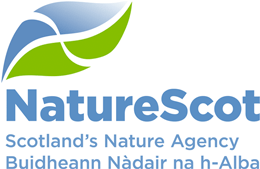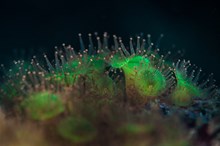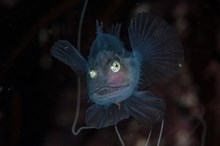21 September, 2016
Ocean Film Festival premiere for St Kilda sea life
A short film showcasing the spectacular range of marine life thriving in the seas of the St Kilda World Heritage Site has been published today (Thursday) by Scottish Natural Heritage (SNH).
The video, which was screened at the Ocean Film Festival in Inverness last week (15 September), follows a team of marine scientists out to Scotland’s most remote island on a mission to explore its underwater caves.
The team, from Heriot Watt University, SNH, and National Museums Scotland, were joined by award-winning marine photographers Richard Shucksmith and George Stoyle, who jointly edited the video. The film features superb pictures from both photographers, including George's overall winning image at the 2016 British Wildlife Photography Awards, of a lion’s mane jellyfish.
The waters around St Kilda form part of Scotland’s Marine Protected Area (MPA) network, designated as a Special Area of Conservation (SAC) for their reefs and sea caves, which attract a wealth of strange and colourful life. Developing the MPA network, which covers approximately 20% of Scotland’s seas, is one of the ways the Scottish Government aims to achieve its 2020 Biodiversity Challenge outcome of ‘clean, healthy, safe, productive and biologically diverse’ coasts and seas.
Clear waters, a fantastic range of marine wildlife, historical shipwrecks and 12,000km of coastline all make Scotland a top holiday destination for SCUBA divers. Diving in Scotland’s seas helps to support hundreds of jobs in the tourism sector and, despite its remote location, there are several dive boat operators offering trips out to St Kilda, nicknamed ‘the islands at the edge of the world’.
The survey was part of SNH’s rolling programme of work to monitor the condition of MPAs around Scotland and the team were delighted with the rich biodiversity they discovered living in the caves. Species starring in the video include scorpion fish, Yarell’s blenny, angler fish, blue-rayed limpets, cup corals, sea slugs and a variety of beautifully kaleidoscopic anemones.
Lisa Kamphausen, from SNH’s marine team, said: “Diving in St Kilda’s sea caves was an experience I will never forget. It felt a real privilege to be out there with all these amazing otherworldly animals, miles and miles from anywhere in the Atlantic Ocean.
“Assessing the condition of MPAs is an important part of the Scottish Biodiversity Strategy. It enables us to report on the state of an area’s protected features and observe the effectiveness of management measures in place at a site. I think it’s fair to say that we found the sea caves at St Kilda in excellent condition.”
The World Heritage Site, St Kilda, lies 41 miles west of Benbecula in the Outer Hebrides and is the most remote part of the British Isles. With life becoming increasingly challenging, the archipelago’s last 36 human residents were evacuated to the mainland in 1930. However, the islands remain hugely important for their wildlife, including the world’s second largest colony of North Atlantic gannets – the largest being on Bass Rock in the Firth of Forth.
A long and a short version of the video are available on the SNH YouTube channel.
Contact information
- Name
- Dominic Shann
- Job Title
- Media Relations Officer
- Telephone
- 01463 725157
- dominic.shann@nature.scot
NatureScot is Scotland's nature agency. We work to enhance our natural environment in Scotland and inspire everyone to care more about it. Our priority is a nature-rich future for Scotland and an effective response to the climate emergency. For more information, visit our website at www.nature.scot or follow us on X at https://x.com/NatureScot
’S e NatureScot buidheann nàdair na h-Alba. Bidh sinn a’ neartachadh àrainneachd na h-Alba agus a’ brosnachadh dhaoine gu barrachd suim a chur ann an nàdar. Tha e mar phrìomhachas againn gum bi nàdar na h-Alba beairteach agus gun dèilig sinn gu h-èifeachdach le èiginn na gnàth-shìde. Tha an tuilleadh fiosrachaidh aig www.nature.scot no air X aig https://x.com/NatureScot


